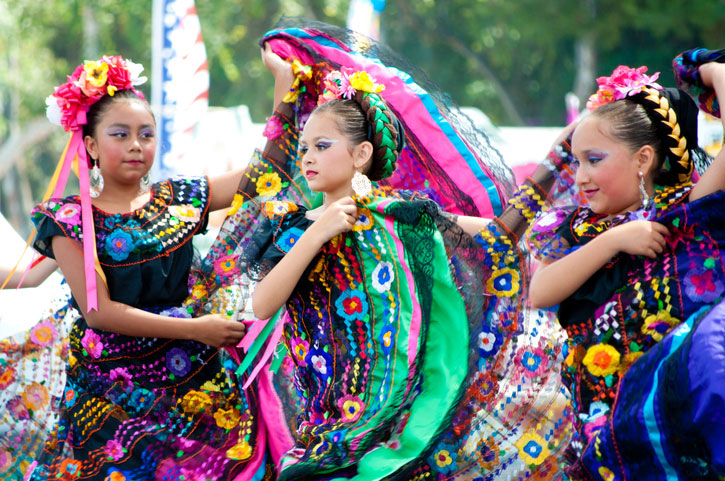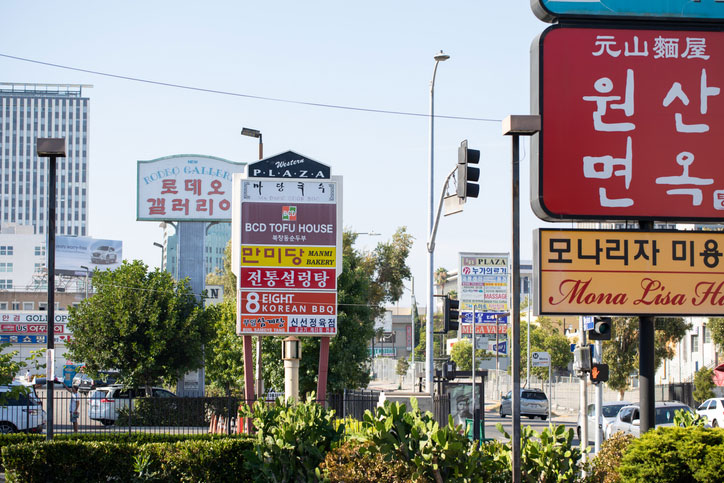Written by Halle Frost

In the vibrant and diverse landscape of California, cultural competency has become a cornerstone of effective psychological practice. For psychologists, being culturally competent means understanding, respecting, and valuing the different backgrounds, beliefs, and experiences that clients bring to the table. As mental health awareness grows and the demand for services increases, psychologists in California must prioritize cultural sensitivity to connect with their clients meaningfully.
The Difference Between Cultural Competence and Humility
Cultural competency isn’t just extra credit points; it’s essential for effective therapy. Clients come from various cultural, ethnic, and socioeconomic backgrounds, each with unique experiences that shape their mental health journeys. A psychologist who appreciates these differences can tailor their approach, making clients feel seen, understood, and valued. This connection enhances trust and rapport, leading to better therapeutic outcomes.
Psychologists who lack cultural awareness risk misinterpretation or dismissal of clients’ concerns, which can lead to frustration, alienation, and even discontinuing treatment. In a state as diverse as California, where nearly 40% of the population identifies as a racial or ethnic minority, it’s crucial for psychologists to be equipped with the knowledge and skills to engage with all clients effectively.
“Cultural humility takes cultural competency a step further. It emphasizes ongoing learning and self-reflection regarding one’s biases and assumptions.”
Psychologists should continually seek to understand their cultural lens and how it may affect their interactions with clients. This practice fosters an environment of growth and openness, allowing for deeper connections and understanding.
Resources for Cultural Competency in California
California is home to numerous resources designed to help psychologists enhance their cultural competency:
- California Psychological Association (CPA): CPA offers training and workshops focused on cultural competence, diversity, and inclusion, providing psychologists with tools to better serve their clients. Check out their event list for upcoming workshops.
- American Psychological Association (APA): The APA has resources dedicated to diversity in psychology, including guidelines for multicultural education, training, and practice. Their website offers numerous articles, books, webinars and even podcasts on cultural competency.
- California Institute of Integral Studies: Several organizations offer programs and workshops aimed at enhancing cultural awareness and sensitivity for mental health professionals.
- Asian American Psychological Association: Peer support or professional networks can provide members that identify with resources or the professionals that are interested in additional support with their patients.
- Association of Black Psychologists: Provides psychologists with community support, mentorship, and resources focused on cultural issues.
- Online Courses and Webinars: Platforms like Coursera and Udemy feature various courses on cultural competency, allowing psychologists to enhance their knowledge at their own pace.
- Community-Based Organizations: Partnering with organizations in your city like the YMCA or shelters that serve diverse populations can provide valuable insights and training opportunities for psychologists to learn from and about the communities they serve.
California’s Ethnic Diversity: A Closer Look
California is a melting pot of cultures, with various ethnic minorities contributing to the rich tapestry of the state’s identity.

Hispanic/Latino Communities
The Hispanic and Latino population is the largest ethnic group in California, making up nearly 39% of the state’s residents. Significant populations can be found in urban areas such as Los Angeles, San Diego, and the Central Valley. The history of this community in California dates back to Spanish colonization in the late 18th century, when missions were established throughout the region. The names of those missions now grace the map as the major metropolitan centers of the state. Many Mexicans migrated to California during the 19th century, especially following the Mexican-American War in 1848. Today, this vibrant community faces challenges such as economic inequality, access to education, and immigration-related issues. Language barriers and discrimination can also hinder access to mental health resources, making culturally competent care crucial.
Black/African American Communities
Approximately 6% of California’s population identifies as Black or African American, with significant communities in urban areas such as Los Angeles, Oakland, and San Diego. The African American presence in California dates back to the Gold Rush era. Today, this community faces numerous challenges, including systemic racism, economic disparities, and health inequities. Many African Americans experience higher rates of mental health issues due to the cumulative effects of discrimination, trauma, and socio-economic stressors. Despite being only 6% of the state’s population, Black men and women make up respectively 28% and 23% of prisoners in California. Access to quality mental health care can be limited by stigma, lack of insurance, and mistrust in the healthcare system, making culturally sensitive services particularly important.
Native American Communities
California has one of the largest Native American populations in the United States, with over 100 federally recognized tribes. These communities face unique challenges, including historical trauma, poverty, and cultural disconnection. Many Native Americans live in rural or underserved areas, limiting their access to healthcare and mental health services. Issues like substance abuse and suicide rates are higher in these communities, often stemming from the intergenerational effects of colonization. Culturally competent care that respects their traditions and addresses their specific needs is vital for effective mental health support. There are specific social service programs available for members of tribes called Indian Health Clinics (IHC).
Asian American Communities
Asian Americans represent about 15% of California’s population, with significant concentrations in cities like San Francisco, Los Angeles, and San Jose. The state has a rich history of Asian immigration, beginning with the arrival of Chinese laborers in the mid-19th century. One walk through Koreatown in LA or Chinatown in San Francisco shows how vibrant and resilient these communities still are. Each wave of immigration brought unique cultural backgrounds, but these communities often face challenges like the model minority myth, which can create unrealistic expectations and pressure.
“Additionally, many Asian Americans deal with issues related to cultural stigma around mental health, leading to underutilization of mental health services.”
Discrimination and xenophobia, especially heightened during the COVID-19 pandemic, further complicate their experiences.

Middle Eastern Communities
California is home to a growing population of Middle Eastern Americans, including individuals of Armenian, Iranian, Lebanese, and Palestinian descent. Many Middle Eastern immigrants arrived during the late 20th century, fleeing conflict and seeking economic opportunities. Today, this community faces challenges such as cultural stigma regarding mental health, discrimination, and the impact of geopolitical tensions on their sense of identity and belonging. Language barriers and a lack of culturally relevant resources can hinder access to mental health services, making it essential for psychologists to approach care with cultural awareness and sensitivity.
Disabled Individuals
In California, individuals with disabilities make up a significant portion of the population, facing unique challenges that impact their mental health and overall well-being. These challenges can include barriers to accessibility, social isolation, and discrimination. Many disabled individuals report feeling marginalized in society, which can contribute to mental health issues such as anxiety and depression. The lack of inclusive mental health resources tailored to their needs further exacerbates these issues. Psychologists who understand the specific experiences of disabled clients can offer more effective support and advocacy.
LGBTQ+ Communities
California has a vibrant LGBTQ+ community, particularly concentrated in urban areas like San Francisco and Los Angeles. While the state has made significant strides toward LGBTQ+ rights and acceptance, individuals in this community still face challenges which can be exacerbated when identifying with additional marginalized groups. Many LGBTQ+ individuals experience higher rates of anxiety, depression, and suicidal ideation, often stemming from experiences of rejection or bullying. Access to affirming mental health care is crucial for this population, and psychologists must be equipped to provide culturally competent services that respect and affirm diverse sexual orientations and gender identities.

Culturally Competent Therapeutic Practices
Culturally competent therapeutic practices involve tailoring approaches to align with the cultural values, beliefs, and experiences of clients from diverse backgrounds. Here are some examples:
-
Using Culturally Relevant Language: Psychologists might incorporate a client’s preferred language or use culturally appropriate metaphors and idioms to explain psychological concepts.
“For example, with Spanish-speaking clients, describing therapy in familiar terms and sometimes bringing in language reflective of collectivistic values (like familismo, the importance of family) can help create a stronger therapeutic connection.” - Family Involvement in Therapy: In cultures where family is a central pillar, such as in Latinx, Middle Eastern, and Southeast Asian cultures, involving family members in therapy or considering family dynamics in treatment planning can be crucial. This may mean developing family-oriented treatment goals or encouraging family participation in sessions where appropriate, as family members often play a major role in support networks and decision-making.
- Integrating Spiritual and Religious Beliefs: Recognizing and respecting a client's spiritual or religious background can be central to culturally competent therapy. For example, in working with clients from Indigenous backgrounds, a therapist might honor cultural traditions around spirituality, such as incorporating discussions of nature and connection to ancestors or collaborate with traditional healers or cultural advisors as appropriate.
- Understanding and Adapting to Communication Styles: Different cultures have varied ways of expressing emotions and communicating. For instance, East Asian clients may value restraint in emotional expression, so therapists might prioritize subtler forms of feedback, be comfortable with silence, and be careful with direct confrontation, as this may feel overly aggressive or uncomfortable.
- Addressing Discrimination and Systemic Barriers: Many marginalized communities face ongoing stressors due to discrimination or systemic issues. Psychologists can acknowledge these challenges in therapy sessions, allowing clients to discuss and process these external stressors openly. For instance, a Black client facing racial discrimination might find it beneficial to work with a therapist who validates these experiences and helps them build resilience against such stressors.
- Adapting Therapy Models: Sometimes, mainstream therapy models may not align perfectly with a client’s cultural values. In cases where individualistic-focused therapies (e.g., CBT) may feel at odds with a collectivist background, a therapist can adapt the approach to include group or community-oriented goals. For Native Hawaiian and Pacific Islander clients, for example, therapists might emphasize the importance of collective well-being and healing practices that consider family and community impact.
- Respecting Traditional Health Practices: Many clients from non-Western backgrounds may have healing practices unique to their cultures. Rather than dismissing these beliefs, culturally competent therapists might acknowledge and integrate traditional health practices. For instance, they may allow space in therapy for clients to discuss practices such as herbal remedies, meditation, or energy work, viewing these as complementary rather than contradictory to psychological healing.
- Promoting Cultural Identity as a Strength: Cultural identity can be a source of resilience for many clients. Therapists can support clients in exploring and embracing their cultural backgrounds, promoting self-esteem and pride in their heritage. For example, psychologists might encourage Indigenous clients to engage in practices or community events that reaffirm their identity and values as a means of building emotional strength.
The Whole Package
Cultural competency involves not only understanding and respecting the different backgrounds clients are from but actively integrating this knowledge into therapeutic approaches to foster trust and effective communication. Cultural humility complements competency by encouraging an ongoing, self-reflective approach where practitioners remain open, curious, and aware of their own biases and limitations. In a state as diverse as California, this blend of awareness, empathy, and adaptability is essential. It ensures that mental health professionals provide care that’s not only clinically effective but also genuinely inclusive, empowering clients from all backgrounds to feel seen, respected, and supported in their journey to mental wellness.
